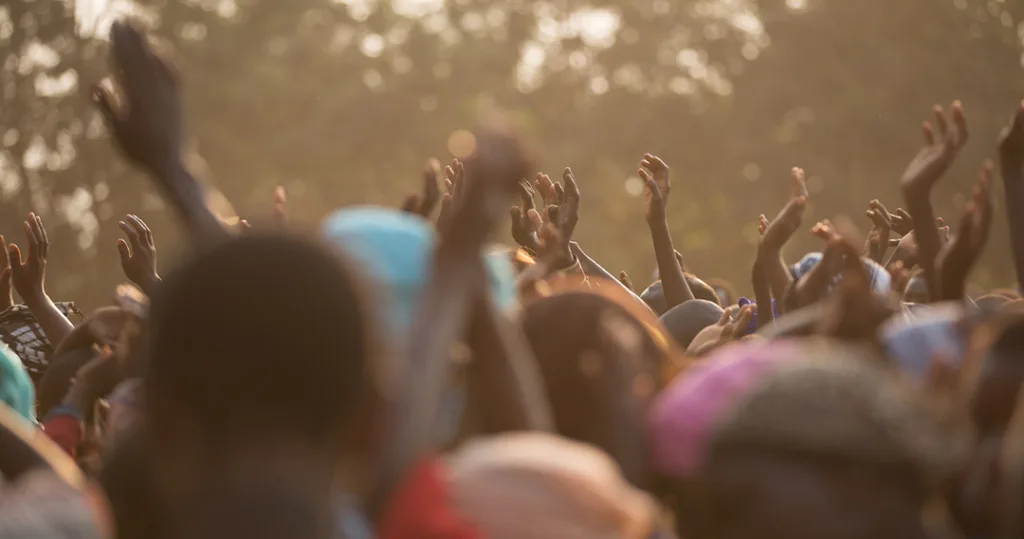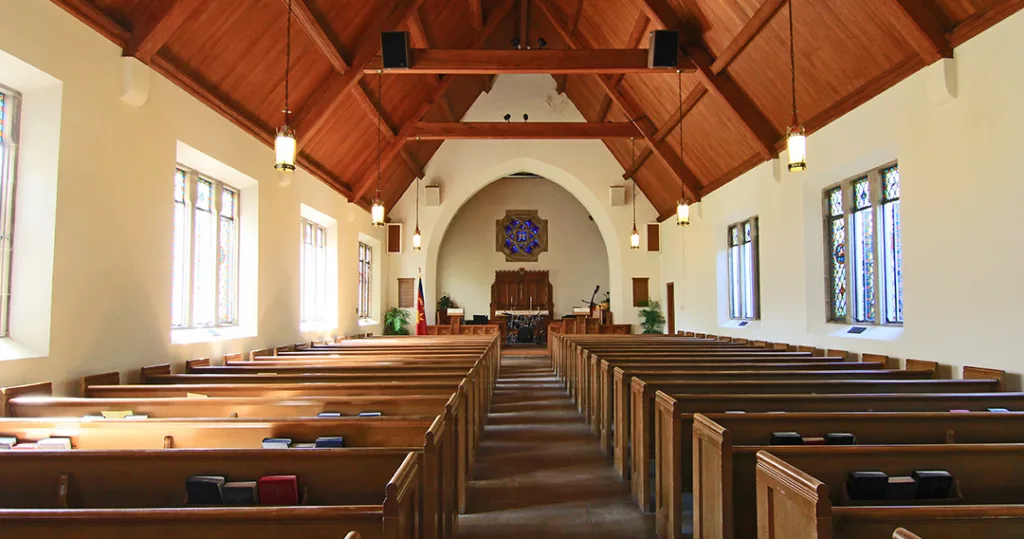Critically Examining Christianity in Ghana: The Controversy Surrounding the Church in Africa

The history of Christianity in Africa is complex and varied, with the religion having been brought to the continent by European colonizers and later spreading through various means, including missionary work and independent movements. In Ghana and other parts of Africa, the church has played a significant role in shaping society and culture, both positively and negatively.
Some Christians in Ghana and Africa have been criticized for being quick to judge others for their beliefs, while also being afraid of criticism about how the church is exploiting people. This may be due to a lack of critical thinking and self-reflection within these communities, as well as a belief that the church is inherently good and should not be questioned.
The relationship between economic development and the rise of the church in Africa is complex, with some arguing that the church has played a role in promoting economic growth and social stability, while others argue that it has hindered development by promoting traditional beliefs and practices that are not conducive to modern economic growth.
There have been calls to regulate the church in Africa, with some arguing that this would help to prevent exploitation and promote transparency and accountability. However, others argue that regulation would infringe on religious freedom and could lead to further marginalization of certain groups within society.
The church in Africa has also been criticized for becoming ritualistic and similar to traditional beliefs that many people claim are bad. This may be due to a lack of innovation and adaptation within the church, as well as a failure to address the changing needs and expectations of society.

The recent increase in the number of “social media pastors” in Africa has also raised concerns, with some arguing that these pastors are exploiting people’s economic hardship by offering quick spiritual solutions without providing real help. It’s important to note that the relationship between economic hardship and people seeking spiritual solutions is complex and multidimensional, and more research is needed to understand it fully.
It is true that some practices of the church in Africa, including Ghana, have similarities with traditional indigenous ritualistic beliefs. This can be seen in the use of music, dance, and other forms of expression in religious rituals, as well as the use of symbols, artifacts, and other elements that are associated with traditional indigenous beliefs.
This can be partly explained by the fact that Christianity was introduced to Africa by European colonizers and missionaries, who often used indigenous rituals and beliefs as a means of converting local populations.This approach, known as “syncretism,” was a way to make Christianity more relatable to the local people by incorporating elements of their traditional beliefs. However, this has led to a certain level of hypocrisy when church leaders who engage in these practices, denounce traditional indigenous rituals as being “pagan” or “heathen.”
Furthermore, this hypocrisy becomes more pronounced when these same church leaders or leaders of the church are the ones who are quick to judge others who engage in traditional rituals or beliefs, while they themselves engage in similar practices. This creates a sense of double standards and undermines the credibility of the church.
In order to address this issue, church leaders should engage in critical self-reflection, and actively seek to understand and respect the traditional indigenous beliefs and practices of the people they serve. They should also be transparent about the origins of their practices, and avoid denigrating other people’s beliefs and practices.
It is true that poverty, lack of social welfare, and the seemingly hopeless nature of the lived experience of many people in Africa, including Ghana, can contribute to the rise of the church. In times of hardship and uncertainty, people may turn to religion as a coping mechanism or source of hope.
However, it’s important to note that the relationship between poverty, lack of social welfare and the rise of the church is complex, and more research is needed to fully understand it. For example, the church might not only be a coping mechanism, but also play a role in perpetuating poverty and lack of social welfare by promoting traditional beliefs and practices that are not conducive to modern development and also by not actively engaging in addressing the social welfare needs of the people.
However, it’s important to note that while the church can provide important support and assistance, it should not be seen as a substitute for government and other organizations that are responsible for addressing poverty and lack of social welfare. The church should work in partnership with these organizations to address these issues in a comprehensive and sustainable way.
The psychology of why some Christians may find it difficult to accept criticism or questioning of their beliefs is complex and multifaceted. One possible reason is that for many people, their religious beliefs are closely tied to their sense of identity and self-worth. Additionally, for some people, their religious beliefs may be closely tied to their emotional well-being and they may be afraid of losing these emotional benefits if they question their beliefs.
The psychology of why some Christians may find it difficult to accept criticism or questioning of their beliefs is complex and multifaceted. One possible reason is that for many people, their religious beliefs are closely tied to their sense of identity and self-worth. Additionally, for some people, their religious beliefs may be closely tied to their emotional well-being and they may be afraid of losing these emotional benefits if they question their beliefs.
Another possible reason is the cognitive bias known as “confirmation bias,” which refers to the tendency for people to seek out and interpret information in a way that confirms their existing beliefs. This can make it difficult for them to consider alternative perspectives or to acknowledge inconsistencies or contradictions in their beliefs.
Additionally, for some people, their religious beliefs may be closely tied to their emotional well-being. For example, their faith may provide them with a sense of purpose, meaning, and hope, and they may be afraid of losing these emotional benefits if they question their beliefs.
Some Christians may be raised in an environment where questioning or criticizing the beliefs is seen as a form of rebellion or disobedience. This can make them hesitant to question or criticize the beliefs they have been taught, as they may fear being ostracized or punished by the community.
In order to overcome this, it’s important for individuals to engage in critical thinking and self-reflection, and to be open to alternative perspectives and ideas. It’s also important for them to be aware of cognitive biases that can influence their thinking, and to actively seek out information that challenges their existing beliefs. Additionally, it’s important for the community to create a culture that encourages questioning and critical thinking without fear of being ostracized or punished.
In Ghana, the Orthodox and charismatic churches have had a significant impact on society and culture, and their belief systems have played a role in shaping the socio-economic landscape of the country.
The Orthodox Church, with its emphasis on tradition and community, has been a stabilizing force in Ghana and has played a role in preserving cultural heritage. The Church’s emphasis on sacraments and traditional liturgical practices has also helped to create a sense of continuity and stability within the community.
On the other hand, charismatic churches, with their emphasis on personal experience and the work of the Holy Spirit, have been credited with promoting a more individualistic and entrepreneurial spirit among their members. This has led to an increase in small business development and economic activity in many parts of Ghana.
However, both Orthodox and charismatic churches have been criticized for their fight for socio-economic relevance. Some argue that the churches have become more concerned with gaining power and influence than with serving the needs of their communities. This has led to criticism that the churches are more interested in gaining political power than in serving the needs of the people.
Politicians in Ghana have also been known to engage with these two churches in different ways. Some politicians have used the churches as a means of gaining support from the religious community, while others have sought to use the churches as a way to gain legitimacy and credibility in the eyes of the public. The competition between these two churches for socio-economic relevance and political support has led to criticism that the churches are more interested in gaining power and influence than in serving the needs of their communities.
In summary, the role of Christianity in Africa, and Ghana specifically, is complex and multifaceted. While the church has played an important role in shaping society and culture, it has also been criticized for promoting traditional beliefs and practices that are not conducive to modern development, and for exploiting people’s economic hardship by offering quick spiritual solutions without providing real help.
The relationship between economic development and the rise of the church in Africa is complex, with different perspectives on the role of the church in promoting or hindering economic growth. The church in Africa has also been criticized for becoming ritualistic and similar to traditional beliefs that many people claim are bad, and for being hypocritical in their approach to these beliefs.
Poverty, lack of social welfare, and the seemingly hopeless nature of the lived experience of many people in Africa, including Ghana, can also contribute to the rise of the church. The psychology of why some Christians may find it difficult to accept criticism or questioning of their beliefs is complex and multifaceted, and it may be due to a lack of critical thinking and self-reflection, a belief that the church is inherently good and should not be questioned, and a fear of losing emotional benefits tied to their beliefs.
In conclusion, it’s important for the church in Africa, including Ghana, to engage in self-reflection and critical thinking, to address the changing needs and expectations of society, and to be transparent and accountable. It’s also important for the church to respect and understand traditional indigenous beliefs and practices of the people it serves, and for individuals within the church to engage in critical thinking and self-reflection, and to be open to alternative perspectives and ideas. Additionally, it’s important for the community to create a culture that encourages questioning and critical thinking without fear of being ostracized.


Comments are closed.